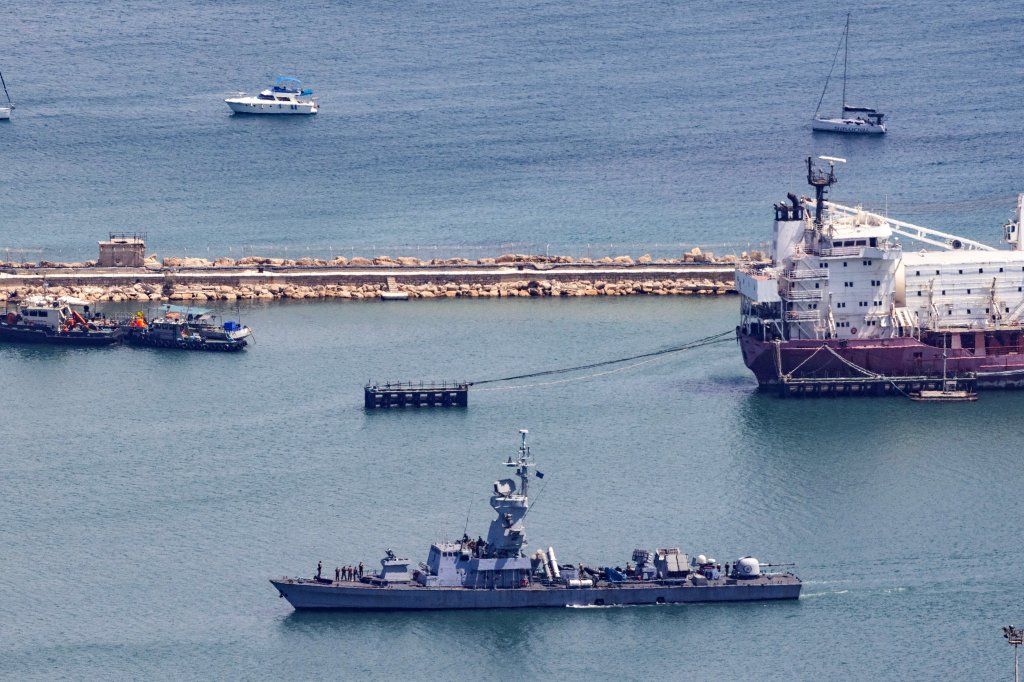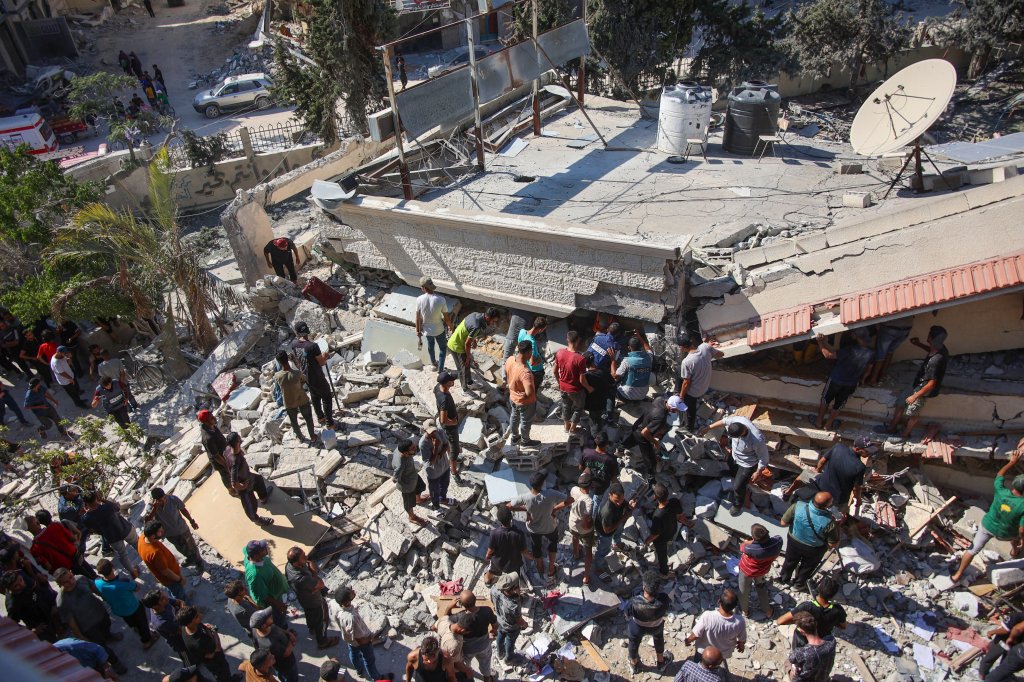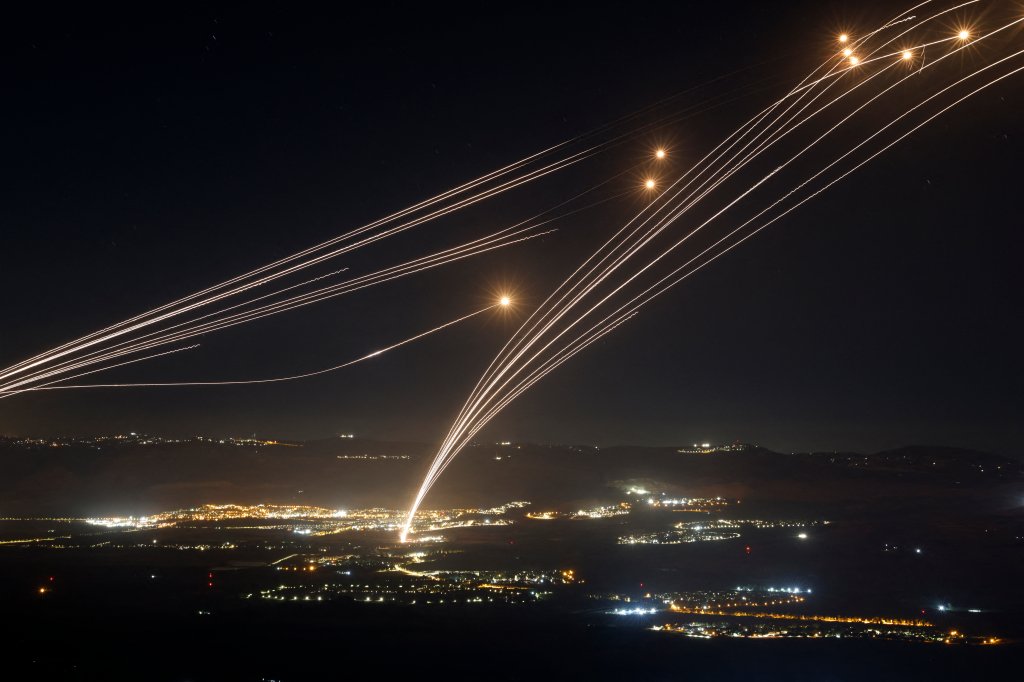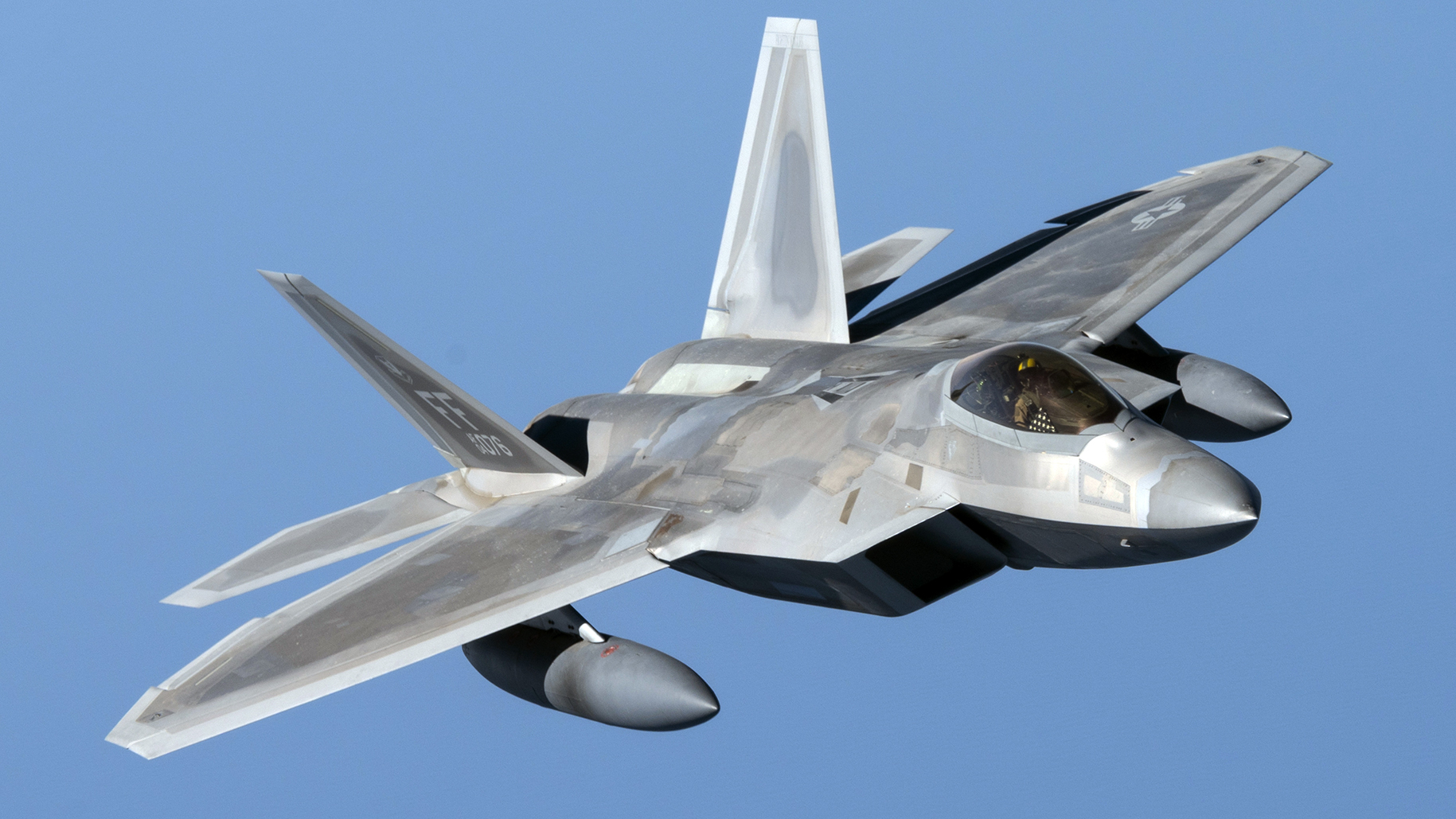Despite international pressure, there appears to be no stopping an expected attack by Iran and its proxies on Israel that could come within hours. Iran has promised to retaliate against Israel for the assassination in Tehran last week of Ismail Haniyeh, the top political leader of Hamas. Facing a potentially massive missile and drone barrage that could cause a large number of casualties, Israel meanwhile is mulling over the idea of a preemptive strike against Iran, according to the Times of Israel (ToI), although exactly what such a move would accomplish remains very murky at best. The deterrent value of even floating such an idea may carry some weight though.
Israel “would consider launching a preemptive strike to deter Iran if it uncovered airtight evidence that Tehran was preparing to mount an attack, Hebrew media reported after Prime Minister Benjamin Netanyahu convened Israel’s security chiefs for a meeting on Sunday evening,” according to ToI. “Jerusalem would require its own intelligence on the issue to match up with US intelligence on the matter,” the publication reported, “and even if it did match, it may still choose to avoid going down the route of a preemptive strike.”
How much Israel could accomplish in a quickly-launched pre-emptive attack is highly questionable given how widely Iran has disbursed its missile and drone launching capabilities, especially at this time, including in deeply hardened installations and on trucks.

Meanwhile, the fierce rhetoric continued on both sides.
“Tehran has the right to discipline the Zionist entity, deter it, and stop its crimes,” acting Iranian Foreign Minister Bagheri Kani said Monday. “We cannot remain idle; we will defend our security, the security of our friends, and our region.”
“Iran and its minions are looking to surround us in a stranglehold of terrorism,” Prime Minister Benjamin Netanyahu’s office said on Twitter. “We are determined to stand against them on every front and in every arena – near and far. Whoever seeks to harm us will pay a very heavy price.”
The assassinations of Haniyeh on July 31 in Tehran and Hezbollah military commander Fuad Shakr in Beirut a day earlier have sparked outrage across the Muslim world already incensed at the widespread loss of life and destruction in Gaza. There is growing concern that the response from Iran and its proxies Hezbollah in Lebanon and the Houthis in Yemen could be far larger and more complex than Tehran’s previous attack on Israel. In April, Iran sent more than 300 drones and missiles toward Israel in retaliation for an Israeli strike on a consular building right next to the Iranian Embassy in Syria’s capital Damascus on April 1 that killed three top Islamic Revolutionary Guard Corps (IRGC) commanders. You can read more about Hezbollah’s massive arsenal in our deep dive here.
Israel’s top military leaders met on Monday to plot a course forward.
Chief of the General Staff, LTG Herzi Halevi, “held a situational assessment and approval of operational plans for the various scenarios, with the Deputy Chief of the General Staff, the Head of the Intelligence Directorate (J2), the Head of the Operations Directorate (J3), the Commanding Officer of the Northern Command, the Commanding Officer of the Israeli Air Force, the Commanding Officer of the Home Front Command and other commanders from the General Staff Forum,” the IDF reported.
Though planning for a major aerial barrage unlike any it has previously encountered, an Israeli Defense Forces (IDF) spokesman told reporters on Monday that its security posture in the north will remain the same for now.
“There is no change to the Home Front Command’s (HFC) defensive policy. We will update it only if required,” IDF spokesman Rear Adm. Daniel Hagari said in a statement Monday. “At the same time, we are in strong readiness for defense in the air, at sea, and on land, and we are preparing for any sudden threat. We will update any changes in defensive policy on the Home Front Command’s platforms, and I will be here to provide updates. The defense is not hermetic, so every citizen is required to know the guidelines for the area they are in and to remain alert.”
In a sign of growing worry among Israeli civilians, Hagari said that “we have seen an increase in public visits to the Home Front Command website and the questions they have raised. All answers can be found on the Home Front Command website, and we are also updating it in response to new questions that have arisen.”
In addition, HFC on Monday “launched a new system called ‘Personal Message,’” Hagari explained. “This is a system recognized by international standards that sends defense alerts for sudden large-scale emergency events. The alert is sent to mobile phones located in a threatened area. This is without the need for an app or any action from the citizen. The system is used worldwide for warnings about large-scale threats such as earthquakes. We have adapted it for alerts about threats like rocket and mortar fire. Again, this is not a replacement for the app.”

The IDF also issued a document planning for three days of widespread problems.
“In the event of war with Hezbollah, the document envisages a potential three-day power outage in some cities; breakdowns in water supply that could last days; a disconnection of landlines for up to eight hours and cellphone communications for up to 24 hours; and brief local disruptions to radio and internet,” The Times of Israel reported on Sunday.
About 40% of Israel’s workforce “may be unable to work for the duration of the conflict, and service providers from outside affected areas may become unavailable throughout, according to the document,” the publication wrote, adding that Israel would likely be targeted with missiles containing 500-kilogram (1,100 pounds) warheads.
Hezbollah in particular “would be expected to prioritize targeting IDF facilities, then infrastructure, and then civilian targets, though that could change,” according to the Times of Israel. “It would be expected to aim at targets far to the south of Haifa, including Tel Aviv, possibly forcing the evacuation of large numbers of people to Jerusalem and to the south.”
The evacuees “would be housed in hotels, some of which are already housing numerous displaced Israelis from the north,” the publication added. “If hotels in the Jerusalem area are full up, the evacuees would be accommodated in schools in the city.”
Plans are also being drawn up for “tent cities in the south, including in areas such as Timna, north of Eilat, and Eshkol Park in the Negev. The model for these is similar to that of the tents set up by Arcadi Gaydamak on Nitzanim Beach in 2006, for citizens evacuated from the north during the Second Lebanon War, and in 2007 at Yarkon Park for Sderot residents.”
There is also concern that Israel’s strategic energy infrastructure could be targeted as well.
Besides threatening Israel, Iran has issued a warning to airlines to alter their routes due to GPS disruptions.
Israel has promised an unprecedented response to a major attack, without offering concrete details. There is unconfirmed reporting that Israel would target Iran’s nuclear facilities that The War Zone cannot independently verify at this time. It would make sense such targets are being considered in any potential strike package on Iran for a multitude of reasons. Even this notion works as a deterrent, but an attack on Israel that is effective of mass destruction could be construed as an example of Iran’s potential willingness to use nuclear weapons in a similar manner and it would give Israel an pretext to go after the nuclear program directly.
As tension mounts, leaders from countries backing Israel and Iran visited the region.
U.S. Central Command leader Gen. Erik Kurilla arrived in Jerusalem to help Israel prepare.
Sergei Shoigu, the Secretary of Russia’s Security Council, visited Tehran with senior leaders.
Shoigu, however, has apparently already left.
The U.S. is sending additional assets to the region “designed to improve U.S. force protection, to increase support for the defense of Israel, and to ensure the United States is prepared to respond to various contingencies,” the Pentagon said in a statement last week.
“To maintain a carrier strike group presence in the Middle East, the Secretary has ordered the USS Abraham Lincoln Carrier Strike Group to replace the USS Theodore Roosevelt Carrier Strike Group, currently on deployment in the Central Command area of responsibility.”
“Additionally, Secretary Austin has ordered additional ballistic missile defense-capable cruisers and destroyers to the U.S. European Command and U.S. Central Command regions. The Department is also taking steps to increase our readiness to deploy additional land-based ballistic missile defense.”
“The Secretary has also ordered the deployment of an additional fighter squadron to the Middle East, reinforcing our defensive air support capability.”
The squadron will consist of F-22 Raptors, Air & Space Forces Magazine reported. If a major barrage were to occur and drones are a centerpiece of it once again, the F-22 could see its first engagements ever outside of shooting down balloons in U.S. airspace.
Russia, meanwhile, has a growing military alliance with Iran and may be supplying it with weapons in addition to technical advice, although just how much weaponry of any kind Russia has to spare is highly debatable. Carnegie Endowment fellow Nicole Grajewski suggested that while not offering nearly as much support as the U.S. has given to Israel, Russia could provide some electronic warfare, radar and targeting equipment.
U.S. President Joe Biden on Monday was scheduled to convene his national security team to plot out how to respond to the growing crisis.
Jordan has been leading an effort to get Iran to hold off on any retaliation, something that seems highly unlikely at this point. After a meeting with Jordanian Foreign Minister Ayman Safadi in Tehran, Iran’s President Masoud Pezeshkian said “the Israeli regime’s assassination of Hamas political chief Ismail Haniyeh was a big mistake that will not go unanswered,” official Iranian media reported.
Safadi told Iranian television “that reducing the escalation and protecting the region from the scourge of a regional war begins with immediately stopping the Israeli aggression on Gaza, and stopping Israel’s violation of the rights of the Palestinian people and its violations of international law.”
Jordan has also informed the U.S., Israel, and Iran “that it will not allow any party to use its airspace amid the current security escalation and expected response from Iran and Hezbollah,” according to published reports. “Jordanian Foreign Minister Ayman Safadi reportedly told Tehran that Jordan will not permit Israel to use its airspace.”
If this decree does indeed include the U.S., and its fighters cannot use Jordan’s airspace even in defending that airspace and on missions into Syria, it could drastically reduce the ability for USAF fighters’ ability to take down incoming drones. F-15Es based in Jordan played a pivotal role in swatting down dozens of long-range Iranian suicide drones during the previous onslaught in April. Still, messaging is just that and it may not reflect Jordan’s true intentions.
Amid all this, the fighting still rages in Gaza, kicked off by the Oct. 7 sneak attack on Israel.

Hezbollah, meanwhile, continues raining rockets and drones down on Israel, a frequent occurrence ever since the Lebanese militant group joined Hamas in its fight against Israel. There has been a major uptick in these attacks in recent days, however.

As the world is braces for what could be a widened war in the Middle East that could drag the U.S. into the fight, Iranian messaging portents a looming attack.
The timing, however, is up in the air.
“We have not detected any Iranian movements indicating a strike in the coming hours,” an anonymous Pentagon spokesman told Sky News Arabia, the outlet claimed on Twitter. The War Zone cannot independently confirm that.
“Tehran’s response to the assassination of Ismail Haniyeh will not come at an expected time or place,” the Islamic Revolutionary Guard Corps’ top commander, Hossein Salami, said on Monday, according to the Telegram channel of the official Iranian Press TV outlet.
Still, while there are clearly efforts underway to avert whatever Iran is planning to do, at this point it seems like the countdown clock is ticking.
Update: 5:43 PM Eastern –
Several U.S. personnel were injured in “a suspected rocket attack today against U.S. and Coalition forces at Al Asad Airbase, Iraq,” a U.S. defense spokesperson told The War Zone.
“Base personnel are conducting a post-attack damage assessment,” said the official. “We will provide updates as more information becomes available.”
Update: 6:29 PM Eastern –
The White House released a readout of Biden’s national security team meeting:
“Today, President Biden and Vice President Harris were briefed by the national security team on developments in the Middle East. The briefing focused on the threats posed by Iran and its proxies to Israel and to U.S. servicemembers in the region. The President and Vice President were briefed on the attack at Al Asad Air Base in Iraq. They discussed the steps we are taking to defend our forces and respond to any attack against our personnel in a manner and place of our choosing. They were updated on U.S. military efforts to support the defense of Israel should it be attacked again. They were also briefed on continued diplomatic efforts to de-escalate regional tension and to bring the ceasefire and hostage release deal to a conclusion. The President and Vice President will continue to receive regular updates from their national security team.”
Update: 6:34 PM Eastern –
The State Department deferred our question about what effect Jordan banning overflights would have to statements made by spokesman Matthew Miller earlier on Monday.
“I just don’t want to speak to it publicly,” he told reporters when asked if the U.S. had assembled the same coalition it did to protect Israel in April. “We are committed to the defense of Israel against attacks from Iran and its proxies, and I think I’ll leave it at that.”
Contact the author: howard@thewarzone.com
